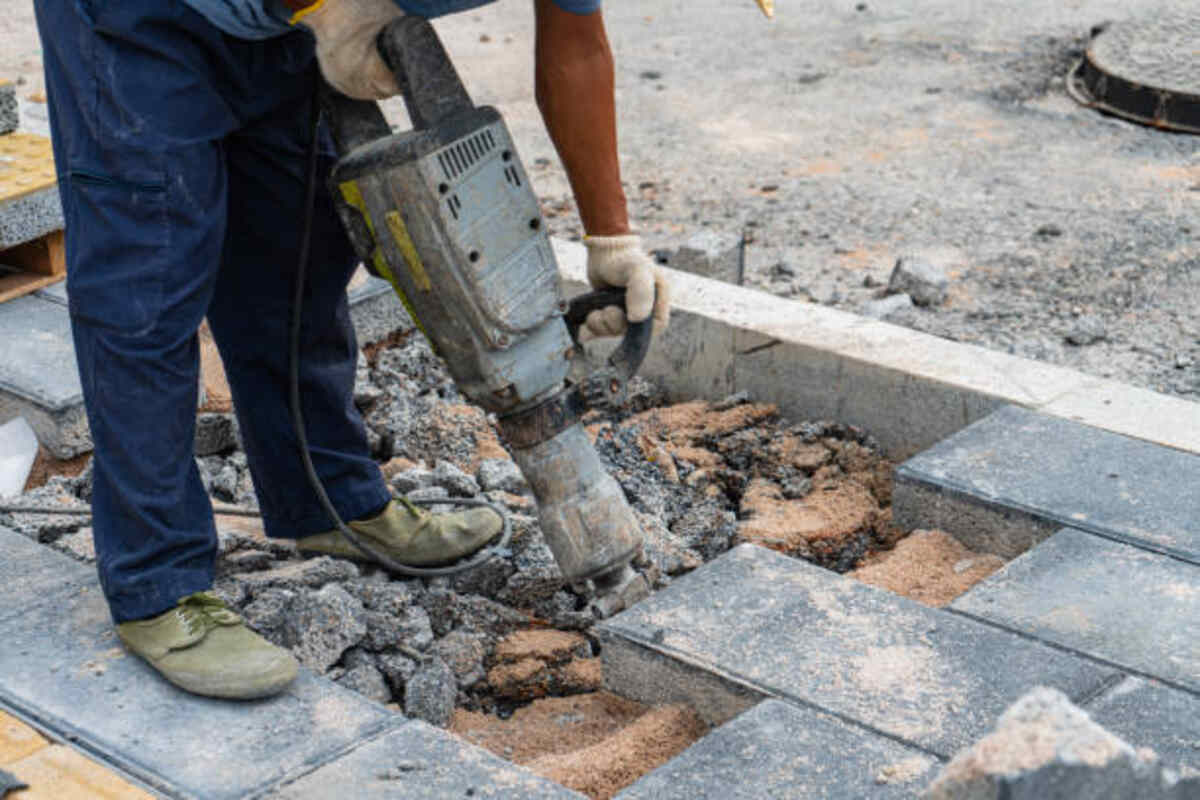What You Need to Know About Demolition and Junk Removal
No matter if it’s for home renovation or office cleaning purposes, demolition and junk removal generate lots of waste that needs to be safely disposed of. Therefore, you will require suitable equipment in order to manage this task safely. Choose the best Demolition Contractor Corpus Christi.
Select a demolition company with specialized tools and equipment, adhering to stringent safety protocols.
Debris Removal
Debris removal refers to the practice of clearing away debris generated during demolition, construction, or renovation projects. This may include both construction waste and household rubbish, such as broken appliances, old furniture, worn-out carpeting, and carpet remnants from years of wear and tear. Debris removal may also be used after natural disasters to remove fallen trees and branches that remain at an affected site.
A qualified demolition contractor should be well versed in all of the regulations and safety protocols that must be observed when undertaking any demolition project in order to ensure its safe completion without issues at its conclusion. They should also be capable of offering advice on preservation issues that need addressing, such as protecting drywall, concrete, or any other components that should remain undamaged during demolition.
A debris removal company should recycle as much material as possible, saving both money and resources in the long run. This may involve reclaiming wood for sale, composting it for landscaping purposes, or recycling other materials in other ways, such as composting. Furthermore, an effective junk removal service must provide protective equipment for their employees on-site, such as hard hats and safety eyewear, to help safeguard against falling debris.
Asbestos Removal
Asbestos is a deadly mineral that poses health risks to workers and the general public alike, including mesothelioma, lung cancer, and asbestosis. Because asbestos exposure poses such serious threats, stringent regulations exist mandating that samples, inspections, and removal are conducted by professionals in order to protect workers and the general public from exposure to its toxic substance. Furthermore, high fines and penalties exist for violators of asbestos regulations, thus discouraging do-it-yourselfers and encouraging building owners and abatement companies alike to follow its rules.
Before asbestos can be safely removed or inspected, it must first be tested to assess its presence and risk level. Once asbestos is found, it must be classified as either friable RACM material (RACM), Category I or Category II non-friable ACM material, or one or both categories as non-friable ACM material, and an appropriate work plan must be implemented accordingly.
If you plan on engaging a professional to perform demolition and junk removal services, make sure they are well-trained, reputable, and accredited. Be sure that they understand local regulations as well as offer work plans with documentation of results; additionally, they should hold valid licenses and insurance for added peace of mind, as well as be familiar with any state/local laws that require notification prior to renovation/demolition activities.
Skips
Skips are sizeable open-topped waste containers used to collect trash and dispose of it responsibly. While typically employed by construction firms to hold and store building debris, skips can also be utilized for general waste collection purposes such as green waste removal, general household garbage, and industrial materials like scrap metal.
As soon as a demolition project has come to completion, there is often plenty of debris and junk to dispose of. Hiring a professional trash removal service will help minimize the mess left behind; when selecting one, make sure that they have experience managing demolition waste in an environmentally responsible manner.
Skips are large containers used to hold waste material until it fills, at which point it is loaded onto a truck and taken for disposal. Homebuilders and businesses commonly employ these containers for cleaning projects and rubbish removal services. There are both open and closed skip options available to them, with closed types having lids to prevent overfilling, while open ones can be loaded manually or via mechanical grab.
Skips come in various sizes, from two cubic yards to twelve cubic yards, and are often known by other names, such as builder’s skips or small and large commercial skips. A sizeable commercial skip can hold an incredible amount of rubbish or waste and be used for various tasks, including office clean-ups or retail renovation projects.
Recycling
At demolition sites, there’s the potential to reuse and recycle many materials that would otherwise go to waste, helping reduce waste while simultaneously saving valuable resources that could be put to better use elsewhere in construction or other projects. Furthermore, recycling reduces gas emissions and helps preserve old-growth forests which have been depleted over time.
Depending upon the type of demolition debris, there are various methods for recycling it. These include mixed material collection, on-site recycling processing, and source separation. With the eclectic material collection, materials such as wood, aluminum metals, gypsum, and glass are collected, separated by category, and sent to recycling facilities for processing. Meanwhile, source separation involves sorting similar types of waste at demolition sites before processing it at facilities.
Recycled demolition debris must be managed carefully so as to recycle only appropriate materials while not wastefully disposing of unnecessary ones. Junk removal companies need to understand how best to handle different kinds of debris, such as concrete and drywall, to avoid disposing of them in landfills or incinerators, which would harm the environment.
Note that demolition debris often contains hazardous materials, making a careful and comprehensive demolition plan essential to safely disposing of them and avoiding environmental risks.
Read also: Shed Demolition Basics


